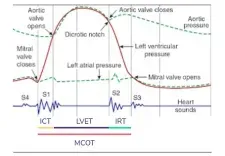What is Recovery?
Recovery is the restoration during the reduced activation level of the body when parasympathetic activation dominates the Autonomic Nervous System (ANS) over sympathetic activity.
In layman terms, there is a part of our nervous system – the Autonomic Nervous System (ANS). This is responsible for controlling the internal organs, including the blood vessels, stomach, intestine, liver, kidneys, bladder, genitals, lungs, pupils, sweat, salivary and digestive glands, and the most important organ – the HEART. The ANS has 2 parts – Sympathetic Nervous System (SNS) and the Parasympathetic Nervous System (PNS).
The SNS prepares the body for stressful and emergency situations, which is also called FIGHT or FLIGHT. It increases the heart rate, the force of heart contractions, widens the airways to make breathing easier, and causes the body to release stored energy. It also causes palms to sweat, pupils to dilate and hair to stand. It slows down processes that are less important in emergencies like urination and digestion.
The PNS controls the body during ordinary situations. It conserves and restores the body, slows down the heart rate, decreases blood pressure, stimulates the digestive tract to process food, and eliminates waste. Energy from this processed food is used to restore and rebuild the tissues.
Recovery is a quantifiable medical measure of this restoration of the body while at rest, governed by the PNS.
What is the medical significance of HRV parameters?
Apart from quantifying the physical restoration and rebuilding of the body as mentioned above, there are numerous studies conducted worldwide by renowned cardiological societies, universities, and institutions that show a clear and significant relationship between HRV parameters and various risks associated with diseases ranging from blood pressure to mortality due to CVDs (CardioVascular Disorders). HRV parameters are a part of many medical scores used to find the risk level of a patient.
What factors affect recovery?
The primary factors that affect recovery are
- Age
- Gender
- Lifestyle (Physical Activity, Exercise, Diet etc)
- Duration of Sleep
What is my apt recovery value and how is it calculated?
Your daily recovery value depends on a number of factors – age, gender, lifestyle, physical exertion and exercise, diet. Based on all these factors a certain recovery is needed by your body to be able to function optimally the following day. This value can change from one day to the next, one week to another. If given the above information, our algorithm can calculate your recovery within acceptable ranges. Without that information, our AI-powered algorithm looks at your historical data stored with us and calculates the value it deems fit, while gradually changing itself to ultimately help you recover better.

#data


